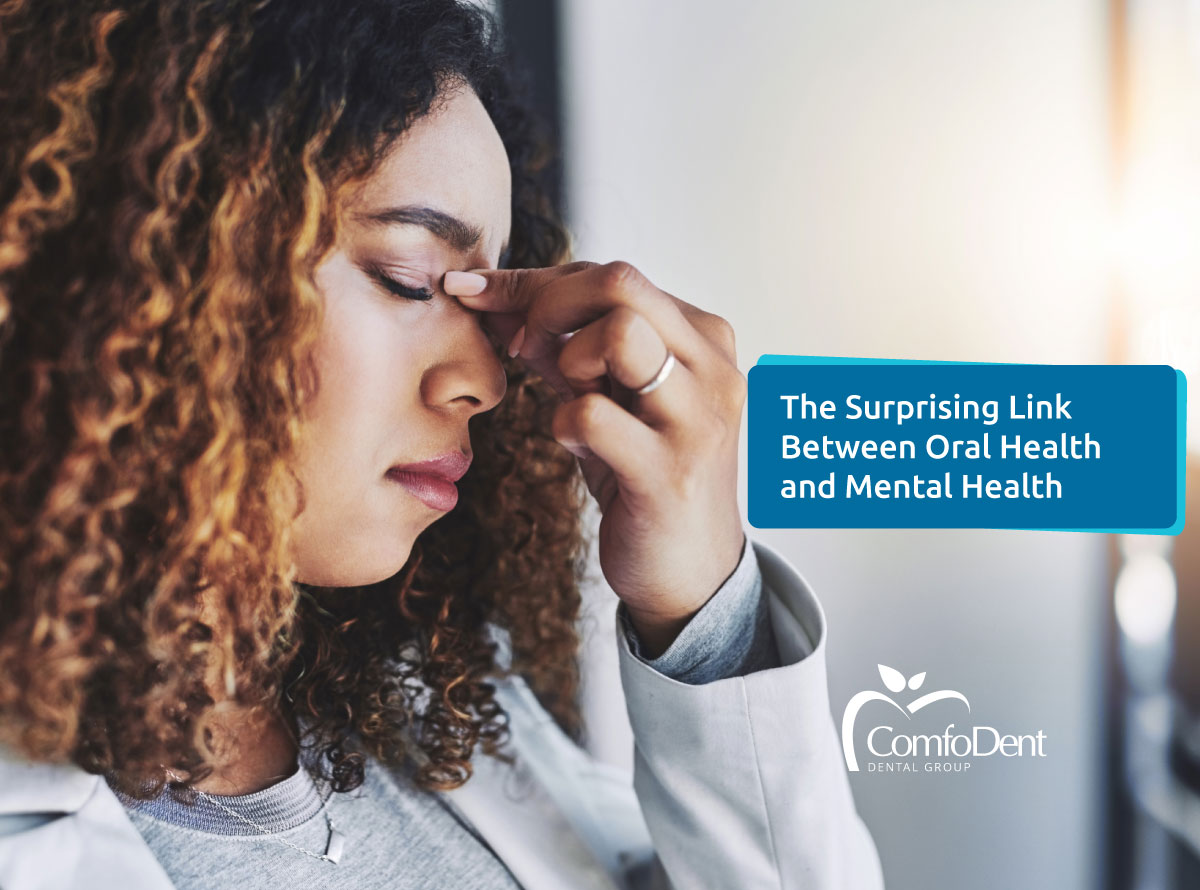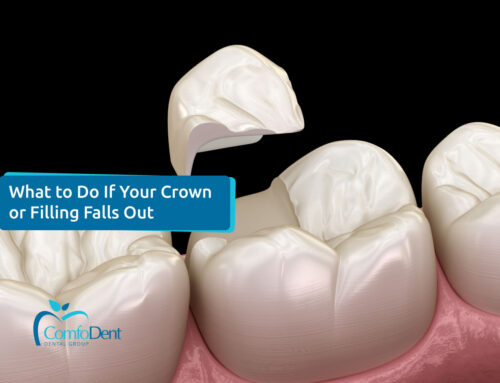When we think about oral health, we usually focus on teeth and gums. But at Comfodent Dental Group, we know that a healthy smile goes far beyond the mouth. Research continues to reveal a strong link between oral health and mental well-being—and understanding this connection can lead to better care and overall quality of life.
From self-confidence to chronic pain, what happens in your mouth can affect how you feel emotionally. In return, mental health conditions can also influence your oral habits and dental care routine. Let’s explore how your smile and your state of mind are connected—and what you can do to protect both.
How Your Smile Affects Your Mental Health
Low Confidence, Higher Stress
If you’re unhappy with your smile—due to missing teeth, discoloration, or bad breath—it can affect how you present yourself. Many patients report avoiding social interactions, feeling embarrassed, or even experiencing anxiety and depression as a result of dental issues.
Chronic Oral Pain and Fatigue
Living with ongoing toothaches, TMJ, or gum inflammation can wear you down physically and emotionally. Pain that interferes with daily life or sleep can lead to mood swings, irritability, or a loss of motivation.
Inflammation and Mood Disorders
There’s growing evidence that chronic inflammation from gum disease can play a role in mental health disorders. Bacteria and inflammatory markers in the bloodstream can impact brain function, potentially contributing to depression or cognitive decline.
Medications and Side Effects
Certain antidepressants, antipsychotics, or anxiety medications can reduce saliva flow, causing dry mouth. This increases the risk of cavities and gum disease, creating new oral health concerns that may add to emotional stress.
Eating Disorders and Dental Damage
In cases of disordered eating, the mouth often shows signs first. Acid erosion, enamel loss, and tooth sensitivity are common in patients with bulimia or anorexia—conditions that deeply affect both physical and mental health.

How Mental Health Affects Your Oral Care Routine
Mental health conditions can also disrupt your daily oral hygiene habits:
- Depression can lead to neglect of brushing, flossing, or attending dental appointments.
- Dental anxiety or phobia may prevent individuals from seeking care even when problems arise.
- Stress can trigger teeth grinding, known as bruxism, which wears down enamel and causes jaw pain.
What You Can Do to Protect Both
At Comfodent Dental Group, we take a gentle and understanding approach to help patients improve both their oral and mental well-being.
Comfortable, Non-Judgmental Care
Whether you’ve missed cleanings or are afraid of the dentist, we welcome you without judgment. We work with you step-by-step to restore your oral health and build confidence again.
Sedation Dentistry Options
If fear is stopping you from seeing a dentist, we offer oral and IV sedation to help you stay calm during your visits. This is especially helpful for patients with anxiety, past trauma, or special needs.
Restorative and Cosmetic Treatments
Whether you need dental restorations, crowns, or teeth whitening, our services are designed to help you feel good about your smile—and yourself.
A Team That Understands
We understand the emotional challenges that come with dental health issues. Our team supports you through education, care, and follow-up that help you stay on track without added pressure.
Q&A: Oral and Mental Health
Q1: Can a bad smile really affect mental health?
A: Yes. Poor oral health can impact your confidence, social life, and even increase the risk of depression.
Q2: Does stress cause oral problems?
A: It can. Stress is linked to teeth grinding, jaw pain, and weakened immune responses, which can affect your gums.
Q3: I’m embarrassed about the condition of my teeth. What should I do?
A: Call us. We specialize in non-judgmental care and will create a treatment plan that fits your comfort level.
Q4: Can dry mouth from medication harm my teeth?
A: Yes. Less saliva means more risk for decay. We can suggest products and habits to protect your teeth.
Q5: How does sedation dentistry work?
A: We offer both oral and IV sedation to help you stay relaxed and pain-free during procedures, especially if you experience dental anxiety.
Let’s Take Care of You—Mind and Smile
Your oral health isn’t separate from your mental health—it’s part of the same picture. At Comfodent Dental Group, we’re here to support your total well-being with caring professionals, advanced treatments, and options designed for your comfort.
Book your visit today. Together, we can help you smile with confidence—inside and out.






